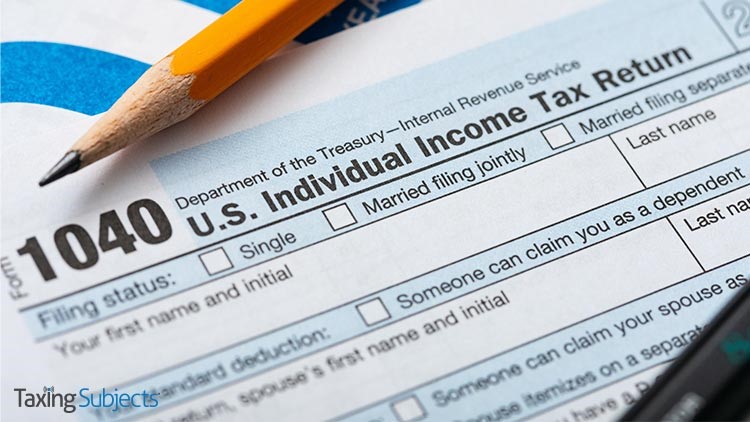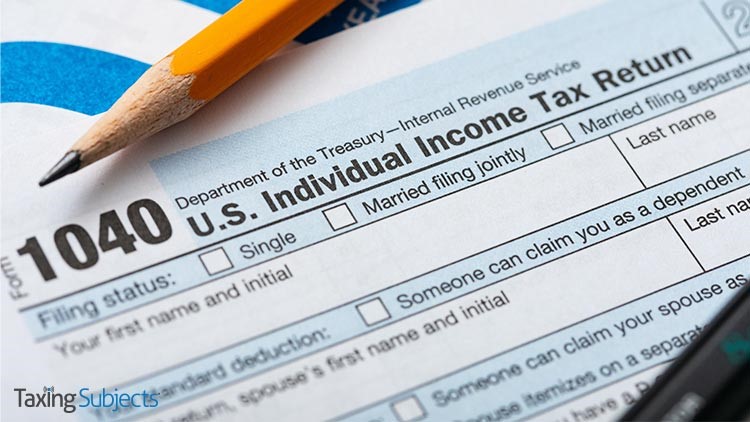
In a matter of weeks the 2020 filing season will be underway. To help ensure that taxpayers don’t get caught unprepared, the IRS is recommending everyone to act now to avoid any tax-time surprises and ensure smooth processing of 2019 tax returns.
As part of a series of reminders, the IRS has put together a special page on IRS.gov that outlines steps taxpayers can take to get ready for the upcoming filing season. We’ll start with the basics.
Adjust Withholding
It’s a good idea to a paycheck or pension income checkup; if a taxpayer got a smaller-than-expected tax refund than expected or owed an unexpected tax bill, it’s especially important. In fact anyone who’s had a life event during the past year – a marriage, a divorce, having or adopting a child, retiring, buying a home, or starting college – should do an income checkup. Use the IRS Tax Withholding Estimator to find the best options.
If the Tax Withholding Estimator recommends a change, an employee can then submit a new Form W-4, Employee’s Withholding Allowance Certificate, to their employer. Do not send this form to the IRS.
Taxpayers who have pension or annuity income can also use the results from the estimator to complete Form W-4P, Withholding Certificate for Pension or Annuity Payments, and give it to their payer.
Taxpayers who receive a substantial amount of non-wage income should make quarterly estimated tax payments. This can include self-employment income, investment income (including gain from the sale, exchange or other disposition of virtual currency), taxable Social Security benefits and in some instances, pension and annuity income. Making estimated tax payments can also help a wage-earner cover an unexpected withholding shortfall.
Estimated tax payments are due quarterly, with the last payment for 2019 due on Jan. 15, 2020. Form 1040-ES, Estimated Tax for Individuals, has a worksheet to help figure these payments. Payment options can be found at IRS.gov/payments.
Got a part-time job in the gig economy? Workers and retirees who get self-employment income or wages from the gig economy (this includes payments in virtual currency) should make sure to include these amounts when filling out the Tax Withholding Estimator. That’s because payments received in virtual currency by independent contractors and other service providers are taxable. Self-employment rules generally apply.
In most cases, payers have to issue Form 1099-MISC, and wages paid in virtual currency are taxable to the employee, subject to withholding, and must be reported by the employer on Form W-2.
For more complex tax situations check out Publication 505, Tax Withholding and Estimated Tax. Pub 505 is also the place to go for taxpayers who owe alternative minimum tax (AMT) or various other taxes, or those with long-term capital gains or qualified dividends.
Get Organized
When it comes to taxes, nothing helps smooth the process like organization. Taxpayers should have some sort of recordkeeping system, whether electronic or paper, that keeps important information in one place. Remember that copies of filed tax returns and their supporting documents should be retained for at least three years. This includes year-end Forms W-2 from employers, Forms 1099 from banks and other payers, other income documents, records documenting all virtual currency transactions, and Forms 1095-A for those claiming the Premium Tax Credit.
It seems to be a natural instinct for taxpayers to fire off their income tax returns the minute the IRS starts accepting them, thinking it will get their refund quicker. This can actually be counter-productive. Many times these “early bird” returns are completed without all the documentation needed – like the year-end Form W-2. If a return is missing documentation, the taxpayer will have to file an amended return to make it right and the IRS says amended returns could take up to 16 weeks to transmit a refund.
The lesson here is to gather all the year-end income documents before a 2019 return is e-filed. In addition, notify the IRS of any address changes and notify the Social Security Administration of a legal name change to avoid refund delays.
Renew expiring ITINs
Taxpayers with expiring Individual Taxpayer Identification Numbers can get their ITINs renewed more quickly and avoid refund delays next year by submitting their renewal application – and doing it quickly.
An ITIN is a tax ID number used by any taxpayer who doesn’t qualify to get a Social Security number. Any ITIN with middle digits 83, 84, 85, 86 or 87 will expire at the end of this year. In addition, any ITIN not used on a tax return in the past three years will expire. ITINs with middle digits 70 through 82 that expired in 2016, 2017 or 2018 can also be renewed.
The IRS urges anyone affected to file a complete renewal application, Form W-7, Application for IRS Individual Taxpayer Identification Number, as soon as possible. Be sure to include all required ID and residency documents. Failure to do so will delay processing until the IRS receives these documents.
It takes about seven weeks from the time a completed form is filed to the time an ITIN assignment letter from the IRS is received. But that time frame expands to 9-11 weeks if an applicant waits until the peak of tax filing season to submit the form – or if the form is sent from overseas.
Taxpayers who fail to renew an ITIN before filing a tax return next year could face a delayed refund and may be ineligible for certain tax credits. Applying now will help avoid the rush as well as refund and processing delays in 2020. For more information, visit the ITIN information page on IRS.gov.
File Electronically and Use Direct Deposit
The vast majority of tax professionals already know that the fastest, most reliable way to get a tax return to the IRS is through e-filing. Whether the taxpayer employs a tax pro to do their return, or files themselves, electronic filing is the way to go.
A statement from the IRS says electronic transmission works best, no matter which direction it’s headed. “Combining Direct Deposit with electronic filing is the fastest way to get a refund. With Direct Deposit, a refund goes directly into the taxpayer’s bank account. No need to worry about a lost, stolen or undeliverable refund check. This is the same electronic transfer system used to deposit nearly 98% of all Social Security and Veterans Affairs benefits. Nearly four out of five federal tax refunds are deposited directly.”
By law, the IRS cannot issue refunds for people claiming the Earned Income Tax Credit (EITC) or Additional Child Tax Credit (ACTC) before mid-February. The law requires the IRS to hold the entire refund − even the portion not associated with EITC or ACTC. This law change, which took effect in 2017, helps ensure that taxpayers receive the refund they’re due by giving the IRS more time to detect and prevent fraud.
A word of caution about refund expectations: don’t rely on getting a refund by a certain date, especially when making a major purchase or paying bills. Some returns need additional review and may take longer to process.
For example, the IRS, along with its partners in the tax industry who serve on the Security Summit, continue to strengthen security review processes to help protect against identity theft and refund fraud. Some of these reviews may require longer to complete and therefore may delay a refund.
Looking for more information? The Let Us Help You page on IRS.gov features links to information and resources on a wide range of topics.

